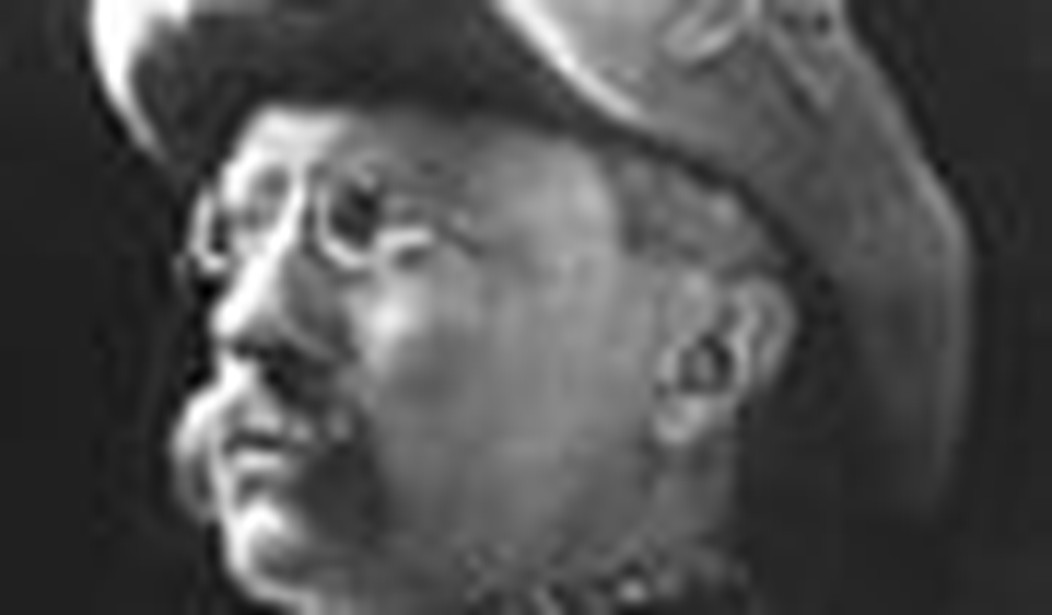John McCain’s admiration of Winston Churchill, as well as his self-comparison to jowly bulldog as evidenced in this new “Man in the Arena” campaign ad, might be just another pro forma presidential posture were it not for other telling facts in McCain’s biography.
As a Navy brat, he was reared on the mythopoetics of British Empire: Long staves of Kipling were recited from memory at the McCain dinner table, and a favorite household book was Captain Alfred Thayer Mahan’s magisterial history, The Influence of Sea Power Upon History, 1660- 1763 . Mahan’s thesis was that national greatness was moored to command of the oceans, not mere in the commercial or mercantile sense, but in the military one. Strategic principles, he wrote, “remain as though laid on a rock.” (Max Boot, the neoconservative military historian, made his name with his first book, The Savage Wars of Peace, which was is in many ways an update on Mahan’s masterpiece. Boot, it should come as no surprise, is a senior adviser to the McCain campaign.)
Influence of Sea Power Upon History coaxed a young Teddy Roosevelt to set upon a course of bold — and disastrous — hemispheric domination, just as it was Kipling’s propaganda song “White Man’s Burden,” written more or less for Roosevelt’s ear and subtitled “The United States and the Philippine Islands,” which helped convinced the Rough Rider of the necessity for squashing the nascent democracy those islands had enjoyed after expelling the Spanish in 1898. (The revolutionary leader of Philippine independence, Emilo Aguinaldo, lived long enough to see sovereignty restored to his homeland in 1946. He later served a term in the country’s parliamentary Council of State.)
McCain was born in 1936 at Coco Solo Naval Air Station in the Panama Canal Zone, whose construction was famously overseen by Roosevelt, so it perhaps not an exaggeration to say that the current Republican nominee was literally nursed on the bundled American legacies of expansionism and martial protectionism.
A long historical memory thus causes him to speak, with frankness and realism, of maintaining a garrison in Iraq for up to 100 years — or, to put that much-maligned and mischaracterized comment in its proper context — “Maybe 100. As long as Americans are not being injured or harmed or wounded or killed, it’s fine with me and I hope it would be fine with you if we maintain a presence in a very volatile part of the world where al Qaeda is training, recruiting, equipping and motivating people every single day.”
And here is where any and all analogy with imperialism ends, for it is not the purpose of the United States to battle al Qaeda to rob Iraq of its sovereignty, but rather to guarantee it.
You’ll notice Theodore Rex placed prominently alongside Churchill in this strange but transfixing new TV spot for McCain. Every schoolboy knows Churchill’s “We shall fight them on the beaches” peroration delivered on June 4, 1940 shortly after he became prime minister (and following the harrowing British defeat at Dunkirk).
Less well known is the quoted stave of Roosevelt’s below, which comes from his 1912 address at the Chicago Progressive Party convention.
This is clearly designed to evoke McCain’s corruption-busting or “maverick” mystique. Note the tones of what would now derisively be called a “Manichean struggle” that Roosevelt employs to describe the need for more transparent government and an end to fat cat plutocracy — rhetoric that is at once soaring and stirring, so unlike that of today’s vapid phrasemongers:
Surely there never was a fight better worth making than the one in which we are in. It little matters what befalls any one of us who for the time being stands in the forefront of the battle. I hope we shall win, and I believe that if we can wake the people to what the fight really means we shall win. But, win or lose, we shall not falter. Whatever fate may at the moment overtake any of us, the movement itself will not stop. Our cause is based on the eternal principles of righteousness; even though we who now lead may for the time fail, in the end the cause itself shall triumph. Six weeks ago, here in Chicago, I spoke to the honest representatives of a convention which was not dominated by honest men; a convention wherein sat, alas! a majority of men who, with sneering indifference to every principle of right, so acted as to bring to a shameful end a party which had been founded over half a century ago by men in whose souls burned the fire of lofty endeavor. Now to you men, who, in your turn, have come together to spend and be spent in the endless crusade against wrong, to you who face the future resolute and confident, to you who strive in a spirit of brotherhood for the betterment of our nation, to you who gird yourselves for this great new fight in the never-ending warfare for the good of humankind, I say in closing what in that speech I said in closing: we stand at Armageddon, and we battle for the Lord.
It’s wise of Mac to stick with Churchill as his paradigm for wartime leadership. But for someone with books on American glory piled high on his shelf, he’s obviously blundered by citing this Roosevelt speech. It will hardly endear him to the shrieking conservative faction within the GOP with which he’s had so much trouble in the past because what party do you suppose Teddy was referring to by the one made up of a “majority of men who, with sneering indifference to every principle of right, so acted as to bring to a shameful end a party which had been founded over half a century ago by men in whose souls burned the fire of lofty endeavor”?
Cover your ears, Limbaugh.
Michael Weiss is the New York Editor of Pajamas Media.









Join the conversation as a VIP Member